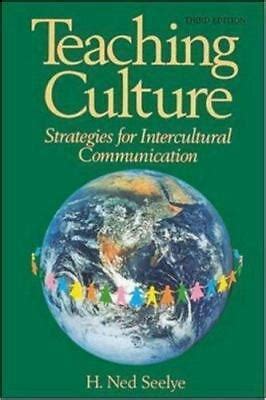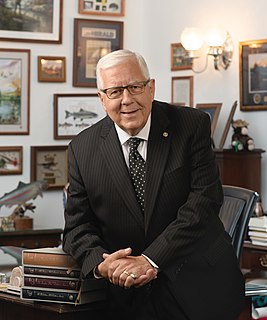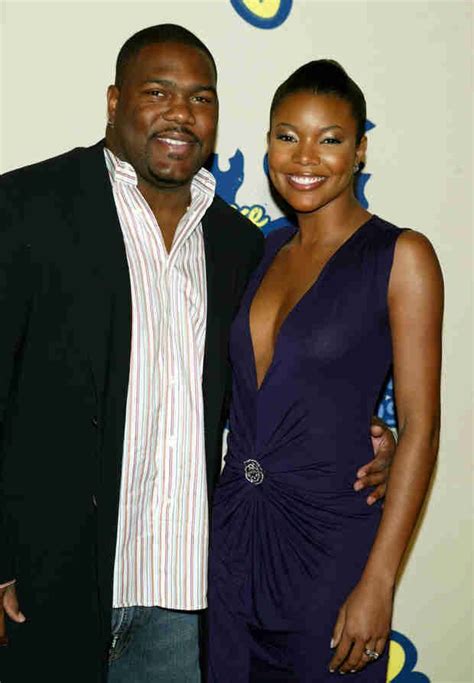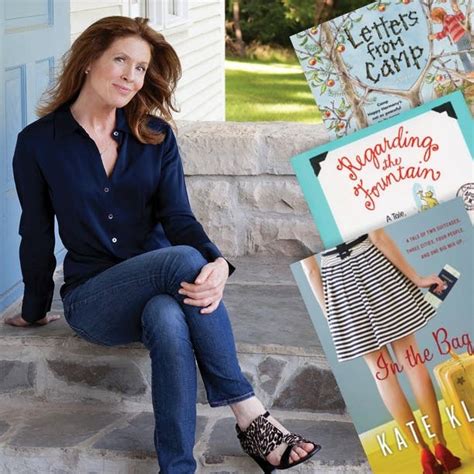Top 590 Rhetorical Strategies Quotes & Sayings - Page 9
Explore popular Rhetorical Strategies quotes.
Last updated on December 25, 2024.
If you are going to be successful, you have to start hanging out with the successful people. You need to ask them to share their success strategies with you. Then try them on and see if they fit for you. Experiment with doing what they do, reading what they read, thinking the way they think, and so on. If the new ways of thinking and behaving work, adopt them. If not, drop them, and keep looking and experimenting.
I was powerless over my childhood but the coping strategies that I developed, to survive, all of which were creative and brilliant and got me through, as an adult those became my defects of character. Those became my shortcomings, control and all that kind of stuff... and that's my responsibility. I was a blameless child in what happened in the home; I take responsibility for my behaviors as an adult.
The temptation to be popular may prioritize public opinion above the word of God. Political campaigns and marketing strategies widely employ public opinion polls to shape their plans. Results of those polls are informative. But they could hardly be used as grounds to justify disobedience to God’s commandments!
Raising a daughter is an extremely political act in this culture. Mothers have been placed in a no-win situation with their daught ers: if they teach their daughters simply how to get along in a world that has been shaped by men and male desires, then they betray their daughters' potential But, if they do not, they leave their daughters adrift in a hostile world without survival strategies.
We in the "developed" world seem to have many auditory strategies that insulate us from the presence of silence, simplicity, and solitude. When I return to Western culture after time in desert, mountain or forest, I discover how we have filled our world with a multiplicity of noises, a symphony of forgetfulness that keeps our won thoughts and realizations, feelings and intuitions out of audible range.
If you are leaping a ravine, the moment of takeoff is a bad time for considering alternative strategies... Do it in the 'closed' mode. But the moment the action is over, try to return to the 'open' mode... because in that mode we are the most aware, most receptive, most creative, and therefore at our most intelligent.
Today is just to the beginning of a long and overdue national discussion on how to protect ourselves from modern cyber crime and evolving national security threats and how to develop the cyber offense strategies necessary to gain a critical security edge in the 21st century. We need the edge, and ideally, a big one.
One might almost say, to adapt von Clausewitz, that modern warfare is PR by other means. And war-winning strategies mean that modern armies most stop treating their communications operations as secondary assignments or (as still too often happens) dumping grounds for officers who have failed at everything else - but as missions absolutely essential to success.
The biggest issue for me is whether large numbers of Americans can begin to think that government can actually help make the country a fairer place. And that's partly a matter of policies that achieve results in terms of reducing inequality and raising middle-class and working-class incomes, which have been flat for decades. But it's also symbolic and rhetorical, it's whether Hillary Clinton can - or whoever's president - can persuade Americans that it's happening and that they can begin to trust their elected officials a little bit more and their institutions of government a little bit more.
A fascinating, insightful, and new treatment from the perspective of an intimately involved former Iranian senior official on Iran's nuclear program and responses to it. For those familiar with the details, there is much new information about the Iran side, its ideas, strategies, disputes, and aims. U.S. experts will have some key questions but will learn much from this extraordinary book.
I don't know whether the movement crashed as a result of the overwhelming character of the institutions we set out to change. I think repression had a lot to do with the dismantling of the movement and also the winning of certain victories had something to do with the inability of the movement to take those victories as the launching point for new goals and developing new strategies.
As we progress along the intercultural journey, we become self-reflective about habits of heart and mind and the ways these are expressed in daily life. We develop strategies for encountering change, unfamiliarity and ambiguity in creative ways. We begin to realize that what is taken, as "common sense" is really "cultural sense". Our life becomes richer and deeper for having encountered differences.
I've basically been able to do everything, I basically run my own career and the decisions I make - whether it's how I'm gonna roll out music, how I'm gonna play on tours, different strategies for releasing and marketing things - and that comes from being college educated and someone who's interested in that side of the business rather than only the music. If anything I think that's where the biggest direct influence comes from.
The merging of the military-industrial complex, surveillance state and unbridled corporate power points to the need for strategies that address what is specific about the current warfare and surveillance state and the neoliberal project and how different interests, modes of power, social relations, public pedagogies and economic configurations come together to shape its politics.
In the past six months, our federal government has devised a dozen strategies to save America's financial markets. Each plan has been more costly, more risky, and less aligned with the principles of our country's free market economy than the last. I am disappointed to say that this latest plan puts all the rest of them to shame.
Elegant in its simplicity and practicality, Lee has distilled many powerful leadership strategies into the lessons many of us learned as children. They are no less relevant to our working lives. At its core, Creating Magic is a collection of stories that reminds us to demonstrate care and respect for every member of the team and to focus our efforts not our ourselves but on the people we lead.
Cloud computing is actually a spectrum of things complementing one another and building on a foundation of sharing. Inherent dualities in the cloud computing phenomenon are spawning divergent strategies for cloud computing success. The public cloud, hybrid clouds, and private clouds now dot the landscape of IT based solutions. Because of that, the basic issues have moved from 'what is cloud' to 'how will cloud projects evolve'.
Military technologies such as Drones, SWAT vehicles and machine-gun-equipped armored trucks once used exclusively in high-intensity war zones such as Iraq and Afghanistan are now being supplied to police departments across the nation and not surprisingly the increase in such weapons is matched by training local police in war zone tactics and strategies.
Many adult book authors supplement their income by teaching at the college level. Full-time professors fare well, but pay for adjunct professors is notoriously shabby. Children's book authors have a sweeter deal. We're invited by schools, libraries, law firms, and Fortune 500 companies to share our best writing tips and strategies.
Life now insists that we encounter groundlessness. Systems and ideas that seemed reliable and solid dissolve at an increasing rate. People who asked for our trust betray or abandon us. Strategies that worked suddenly don't. Groundlessness is a frightening place, at least at first, but as the old culture turns to mush, we would feel stronger if we stopped searching for ground, if we sought only to locate ourselves in the present and do our work from here.
It'd be nice to learn enough from each mistake that we'd be guaranteed to never repeat that same mistake twice. But, how many times have you said, 'I'll never do that again,' only to find yourself right back at it a few days later. Learning from our mistakes requires humility and a willingness to look for new strategies to become better.
The freedom I give myself for the business is in deciding to take part in the Paris collections, but also having other retail strategies that are unlike anybody else's. Not necessarily going into malls, doing the business my own way - having different brands to cover different concepts, to be able to have the cash flow to carry on.
Mindfulness is the ability to be aware, to note, to notice. When we apply that to our thoughts and mental habits, we bring a clarity of awareness in seeing what's just an ordinary thought and what's a judging thought that's pejorative or putting us down in some way. So, we first bring that lens of awareness, and then we can do all kinds of different strategies. We can inquire.
Marital partners often trigger in each other resourceless states—negative trance-like experiences in which partners feel devoid of satisfactory solutions. Carol Kershaw maps these interactional loops and provides Ericksonian strategies to help couples make their marriage entrancing. Therapists of all persuasions are sure to benefit from this important book.
Critical Race Theory offers a critique of how law and certain law reform strategies misunderstand the actual operation of life-shortening state violence, and how that has produced a set of reforms that fail to actually transform material conditions of white supremacy. These critiques redirect our attention to the conditions we aim to transform.
Taking ideas seriously does not fit with the rhetorical style of textbooks, which presents events so as to make them seem foreordained along a line of constant progress. Including ideas would make history contingent: things could go either way, and have on occasion. The 'right' people, armed with the 'right' ideas, have not always won. When they didn't, the authors would be in the embarrassing position of having to disapprove of an outcome in the past. Including ideas would introduce uncertainty. This is not textbook style.
At least one reason for trying to live lives that make a difference is that by so living, we hope we will not be forgotten by those who benefit from our trying to make a difference. Yet to try to insure we will not be forgotten too often results in desperate manipulative strategies that are doomed to fail.
I was radicalised by being a minister. That's when I saw how the system really worked. And that is not a very usual process, but it certainly happened to me: it gave me a lot more experience, it helped me to understand where power really lay, develop strategies for undermining or changing it, and so on. But that isn't the norm. Mr Gladstone moved to the left as he got older, and one or two other people have, but normally you swing the other way.
[C]ultivated risk-taking represents an 'experiment with trust' (in the sense of basic trust) which consequently has implications for an individual's self-identity. (...) In cultivated risk-taking, the encounter with danger and its resolution are bound up in the same activity, whereas in other consequential settings the payoff of chosen strategies may not be seen for years afterwards.
In his recent book, When Brute Force Fails, UCLA's Kleiman argues that new strategies for targeting repeat offenders--including reforms to make probation an effective sanction rather than a feckless joke--could cut crime and reduce prison populations simultaneously. Safer communities, in turn, might produce more hopeful and well-disciplined kids.
Benedict XVI leaves no room for uncertainty or minimization. At this present time in which she feels humiliation, the Church learns from the Pope to not fear the truth, even when it is painful, to not hide it or cover it up. However, this does not mean enduring strategies to discredit (the Church) in general...It is appropriate, then, that we all return to calling things by their names at all times, to identify evil in all of its gravity and in the multiplicity of its manifestations.
At least three further requirements supplement the strategies of environmentalists if we were to create and preserve a less violent world. 1) Every culture must begin to affirm the female future. 2) Species responsibility must be returned to women in every culture. 3) The proportion of men must be reduced to and maintained at approximately ten percent of the human race.
Let's be frank: if there are hardened terrorists [Australian] who are fighting overseas, we don't want to see those people come back to our shores. But if we could stop youngsters, teenagers from falling into the snares of ISIL or Jabhat al-Nusra or other terrorist organisations through parental intervention and other strategies then, we hope to be able to rescue them before they commit these crimes.
The refusal to feel takes a heavy toll. Not only is there an impoverishment of our emotional and sensory life, flowers are dimmer and less fragrant, our loves less ecstaticâ but this psychic numbing also impedes our capacity to process and respond to information. The energy expended in pushing down despair is diverted from more creative uses, depleting the resilience and imagination needed for fresh visions and strategies.
The CRAFT approach, developed by Bob Meyers at U of New Mexico, is one set of important tools that DO work, and it feels great to see families using these strategies and getting results, feeling hopeful again, feeling empowered, getting support, learning to trust themselves again, getting their lives and the lives of their children back.
There are sharply different, competing models of what trans advocacy looks like - those that seek to follow the path laid out by the most visible and well-funded lesbian and gay rights organizations in the US and those that seek to use grassroots strategies, center issues of race and poverty, and aim to dismantle harmful institutions and conditions to redistribute life chances.
We'll work on relaxation strategies and also changing the times you go to bed will actually make them sleep a little bit less for a few nights so their body's natural sleep drive starts to kick in. That is very effective in about 60% to 70% of patients who do it, four to eight sessions, not even every week; it works for 60% to 70% of patients.
A masterly analysis of how political interests, economic circumstances, development strategies, and local history have shaped what are surprisingly different versions of the welfare state across the developing world. The authors combine fine-grained country analyses with intelligent use of data, and explain and extend the theory and literature on the modern welfare state. The book is both scholarly and readable.
After giving a student the basic mating patterns and strategies you must begin giving them advanced concepts. At first these ideas will not make sense, many players will have a vague idea of what you are talking about but nothing more. Even a fragmented understanding of these concepts will prove useful though, and eventually they will improve as these lessons are assimilated by repetition and example.
There are lots of reasons fewer people are watching network news, and one of them, I'm more convinced than ever, is that our viewers simply don't trust us. And for good reason. The old argument that the networks and other `media elites' have a liberal bias is so blatantly true that it's hardly worth discussing anymore. No, we don't sit around in dark corners and plan strategies on how we're going to slant the news. We don't have to. It comes naturally to most reporters.
Since Hillary Clinton is the first time we've had a woman who was a serious contender for president, it's been an adjustment to watch her more changeable looks, and to see the lengths she goes to get the right lighting and to make the right wardrobe choices. Her campaign is devising strategies to humanize her and make her seem more warm and maternal.
The best memoirs - like This Boy's Life, or Crazy Brave [by Joy Harjo], for instance - bring you through a private river of storytelling that joins a major ocean of human struggle and joy. The act of enunciation - the forms and strategies of storytelling - are every bit as literarily serious as they are in poetry or other prose forms.
There's a tendency at the senior and middle-manager level to be too big-picturish and too superficial. There is a phrase, "The devil is in the details." One can formulate brilliant global strategies whose executability is zero. It's only through familiarity with details - the capability of the individuals who have to execute, the marketplace, the timing - that a good strategy emerges. I like to work from details to big pictures.
Given the racist and patriarchal patterns of the state, it is difficult to envision the state as the holder of solutions to the problem of violence against women of color. However, as the anti-violence movement has been institutionalized and professionalized, the state plays an increasingly dominant role in how we conceptualize and create strategies to minimize violence against women.
In a way, going to Africa allowed me to see possibilities that sometimes seem impossible in certain conditions. It also allowed me to see opportunities for material strategies. I hate it when people think I went and got something [from Africa] and brought it here. It's more about how it affects the way in which I work and affects [my] creativity.
For the academic the rhetorical sense of superiority through the possession of knowledge is essential for facing the daily grind, turning again to the otherwise boring article, braving the students who, fresh as each class may be, will still ask the same questions year after year. Psychological survival is not achieved without effort, and the environment must be managed, knocked about with one's elbows until it takes a shape comfortable to one's sense of self. This is not selfishness, for in reshaping the environment the academic is also reinvigorating the educational process.
Various random experiments, cut-ups, fold-ins, juxtapositions, timed writings of other kinds, the "objects assignment" which involves dream, adventure, ancestry. Writing outside, writing on moving vehicles. Looking at paintings in the grand museums of the world in a proscribed way.Little strategies to keep the lalita - play or dance - going. Sometimes it's lonely you know, just you and your own imagination.
As damaging as the obsessive emphasis on testing often proves to be for kids in general, I believe that the effects are still more harmful in those schools in which the resources available to help the children learn the skills that will be measured by these tests are fewest, the scores they get are predictably the lowest, and the strategies resorted to by principals in order to escape the odium attaching to a disappointing set of numbers tend to be the most severe.
Often people say they can't base their strategies on customers because customers make unreasonable requests and because customers vary too much. Such opinions reveal serious misconceptions. The truly outside-in company definitely does not try to serve all the needs of its customers. Instead, its managers are clear about what their organization can and should do for customers, and whatever they do they do well. They focus.
When something like personal genomics or synthetic biology suddenly appears - it seems to suddenly appear - we might have been working on it for 30 years, but it seems to come out of nowhere. Then you need strategies for engaging a lot of people and thinking about where it will be going in the next few months or few years.
I prefer people to disagree with me because I really don't think I'm smart enough to know what all the answers are and I think the back and forth ... we have a lot of it in our office, strong personalities, big intellects, good ideas - I think that back and forth has produced better strategies and tactics for us than if I sat in my office and decided we're doing those 10 things and that's the end of it.
Though I consider The Chronology of Water to be an anti-memoir for very precise reasons, it is an art form, and thus as open to "critique" as any other art form. Memoir has a form, formal strategies, issues of composition and craft, style, structure, all the elements of fiction or nonfiction or painting or music or what have you.
We do not need to minimize the poverty of the ghetto or the suffering inflicted by whites on blacks in order to see that the increasingly dangerous and unpredictable conditions of middle-class life have given rise to similar strategies for survival. Indeed the attraction of black culture for disaffected whites suggests that black culture now speaks to a general condition.
The timing & characteristics of state intervention affect not only organizational tactics and strategies, but the content and definition of interest itself... Some scholars have directly stressed that state interventions create corporatist forms... the formation, let alone the political capabilities, of such purely socioeconomic phenomena as interest groups and classes depends in significant measure on the structures and activities of the very states the social actors, in turn, seek to influence.
I'd finished the first two [books] and they were going to to be published, and [editor] said, "We need you to write a summary that will drive people to these books." And it took forever. I couldn't think of a thing to say. I looked at the back of other children's books that were full of giddy praise and corny rhetorical questions, you know, "Will she have a better time at summer camp than she thinks?" "How will she escape from the troll's dungeon?" All these terrible, terrible summaries of books, and I just couldn't.
People believe that companies have always had strategies, dating back at least to likes of Henry Ford or Andrew Carnegie, maybe to the contractors who built the Pyramids. As it turns out, it was only in the 1960s and 1970s that a new breed of "business intellectuals" began to develop the intellectual framework that allowed companies to look at the three "C's" of any good strategy - namely their costs, customers, and competitors - in an integrated way.
























































